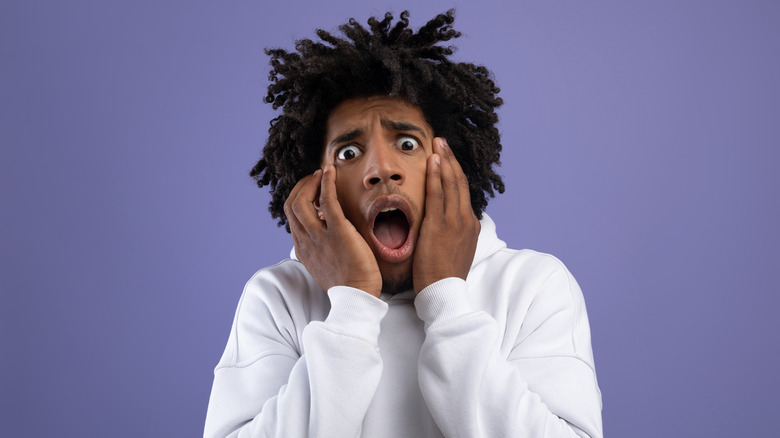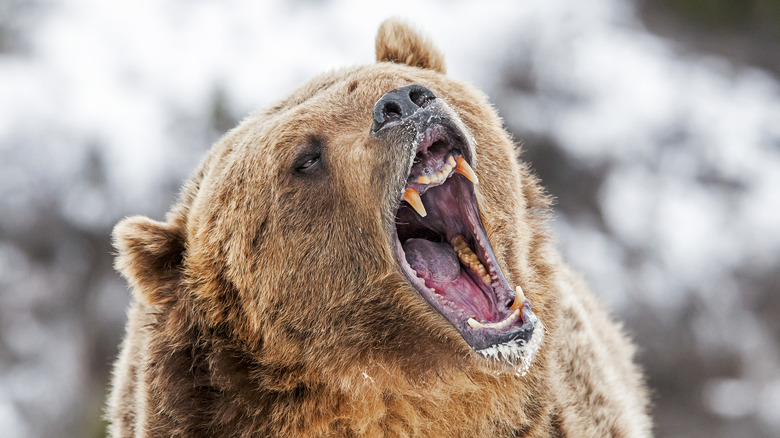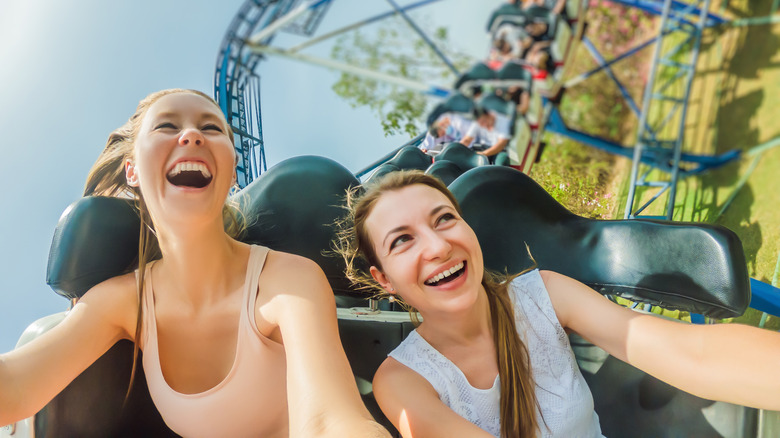The Scientific Explanation Of Why People Love To Be Scared
Halloween, as it's celebrated in the United States anyway, is unique among holidays we observe in that it doesn't exalt a major religious event (such as Christmas or Easter), nor an event of great national significance (like the 4th of July), but rather it celebrates ... well, not to put too fine a point on it, but it celebrates death. The holiday is basically completely divorced now from the cultural and religious underpinnings that gave birth to it in Europe centuries ago, but at its core, the holiday still acknowledges the ancient belief that this time of year is when the veil between life and death is at its thinnest. And we acknowledge that by celebrating the spooky -– donning costumes, watching horror movies, decorating our yards with gruesome props, and, for some anyway, patronizing haunted house attractions.
When you think about it, however, fear is a negative emotion. We experience it when we believe something bad is about to happen and taken to extremes, it can ruin lives. But when fear is given to us in small, manageable chunks –- at a scary movie, for example, or a haunted house attraction -– it can be quite the rush; at least, for people who are into it. And science is pretty clear as to why at least some people actually enjoy being scared.
The Fight Or Flight Response
Imagine that you're a prehistoric human, going about your day when you cross paths with a predator. Fortunately, evolution has given your brain some gifts that are going to be immensely helpful to you. Your eyes will see the threat, your ears will hear it, and other sensory information will convince a part of your brain -– the amygdala, according to Inverse –- that something is going down. That invokes the "fight or flight" response, and your brain immediately releases chemicals that prepare your body to fight back or flee.
Now another part of the brain –- the hippocampus -– kicks in to evaluate just how real the threat is. And assuming we know that the threat isn't real –- such as when we're safely strapped into our seat on a roller coaster, or because we're in a theme park and the people jumping out at us are just costumed men and women collecting a paycheck –- the hippocampus dampens the fear response somewhat. Or to put it scientifically, "inhibitory pathways dampen the amygdala fear response and its downstream results," notes Inverse writers Arash Javanbakht and Linda Saab. Or put another way, we get that initial "rush," followed almost instantly by a sense of calm and relief.
It's Like A Drug (Kind Of)
Once your brain has realized that the threat you're facing isn't really a threat, your brain releases chemicals that can be counted on to create a pleasurable experience. "Think of it as hijacking the flight response and enjoying it. This is similar to a high arousal state, not sexual, but like when we're happy, laughing, excited, or surprised," said Dr. Margee Kerr, Ph.D., sociologist, and author of the book, "Scream: Chilling Adventures in the Science of Fear," via Healthline.
One of the chemicals produced by the brain in all of this is dopamine, which also plays a role in addiction. And in fact, as Dr. Dae Sheridan tells WTVT, fear can become an addiction in certain people. "We know people who are adrenaline junkies who want more and more experiences to get excited because just like a drug or alcohol. If you use that over and over you need more of that to get the same effect," she says.
Sheridan also cautions you to avoid letting your friends or family pressure you into doing a fear-based activity –- such as going through a haunted house attraction or getting on a thrill ride –- if you don't want to. "It may backfire on you and provide more worry, nervousness, anxiety," she says.


